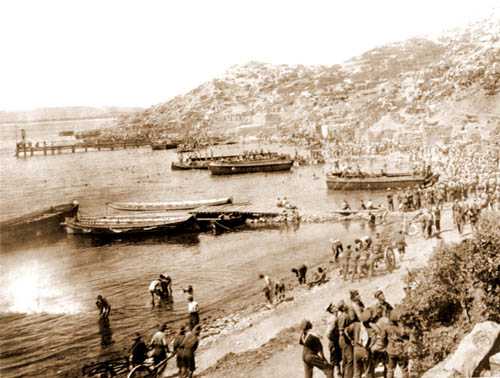Kanada Turk Dernekleri Federasyonu Mustafa Kemal Ataturk’u aniyor.
Mustafa Kemal Ataturk founded a republic based on the principles of secularism, democracy, the respect of human rights by adopting the principles of gender equality, founded on the rules of civil law. He ensured that it was contemporary, progressive, peaceful and used science, knowledge, art as a source of power for the republic.
We, women and men all Turkish Canadians in Canada, are commemorating Mustafa Kemal Ataturk with our deepest respects, affections and gratitude.
75 years ago today on November 10 1938, the founder and the first president of the secular, democratic, modern, Republic of Turkey, Mustafa Kemal Ataturk died at the age of 57. He is globally recognized as one of the greatest revolutionary statesmen and as one of the most genius military commander of all times.
Ataturk’s greatest achievement the Turkish Republic is celebrated 90th anniversary last month in Canada as well as a part of FCTA and member Association’s Republic and Ataturk month events. Mustafa Kemal Ataturk implemented many progressive reforms that transformed the country into today’s modern state that became the pioneer of democracy in the turbulent Middle East. An admirer of the Age of Enlightenment, Ataturk sought to transform the former Ottoman Empire into a modern, democratic, and secular nation-state.
Ataturk Centennial was declared in 1981 by UNESCO. Ataturk is the only person to receive such recognition by UNESCO. It recognized Ataturk in particular that he was the leader of one of the earliest struggles against colonialism and imperialism. UNESCO recalled that Ataturk set an outstanding example in promoting the spirit of mutual understanding between peoples and lasting peace between the nations of the world, having advocated all his life the advent of ‘an age of harmony and co-operation in which no distinction would be made between men and women on account of color, religion, sex or race’.
The crowning achievement of Great Leader Ataturk’s revolution is the role that it attached to women. Indeed, the strength of secularism in Turkey is best illustrated by the new social status of women and their new role in the public sphere. Secularism emancipated women from ancient and outdated practices, and eliminated the segregation of genders. Participation of women in social and public life as fully fledged citizens determines the distinct features of the modern secular way of life. Turkish women consider their status and roles as indispensable and irrevocable rights. It is the pride of the Turkish Republic Ataturk stands as one of the world’s few historic figures who dedicated their lives totally to their nations.
Kind Regards,
Huseyin Nurgel, M.Eng.,P.Eng.
President, the Federation of Canadian Turkish Associations
Email: [email protected]
Address: 1170 Sheppard Ave. West Unit 15, Toronto, Ontario, M3K 2A3
www.TurkishFederation.ca | www.Fb.com/TurkishFederation | www.twitter.com/TurkFederation
Laik, demokratik, insan haklarina saygili, kadin erkek esitligi prensiplerini benimsemis, medeni hukuk kurallari uzerine kurulmus, cagdas, ilerici, barisci, gucunu bilim, sanat ve akildan alan Turkiye Cumhuriyetimizin kurucusu olan ulu onder, buyuk asker, buyuk devlet adami Mustafa Kemal Ataturk’u, Kanada’da kadin-erkek hep birlikte, sonsuz minnet, sukran ve rahmetle aniyoruz.
75 yil once bugun 10 Kasim 1938 tarihinde; laik , demokratik, cagdas Turkiye Cumhuriyeti’nin kurucusu ve ilk cumhurbaskani Mustafa Kemal Ataturk, 57 yasinda vefat etti . Dunyaca tum zamanlarin en buyuk devrimci devlet adamlarindan ve en dahi ordu komutani olarak kabul edilmektedir.
Ataturk’un buyuk basarisi ve bizlere emaneti Turk Cumhuriyeti 90. yildonumu gectigimiz Ekim ayinda “Cumhuriyet ve Ataturk Ayi etkinlikleri kapsaminda tum Kanada cografyasinda buyuk bir cosku ile kutlanmistir. Mustafa Kemal Atatürk devrimleri ile ulkesini çalkantılı Orta Doğu’da demokrasinin öncüsü haline getirmistir.
UNESCO 1981 yilinda, 100. Dogum Yildonumu nedeniyle Ataturk’u “Ulusal Mucadele ve Cagdaslasma Lideri” olarak ilan ederek evrensel niteliklerini ortaya koymustur. Bu karar dogrultusunda, Ataturk’un dogumunun 100. yili butun dunyada, “1981 Ataturk Yili” olarak kutlanmistir. Bu uygulama, dunyada ilk ve tektir. UNESCO Onderimiz Mustafa Kemal Ataturk’u “Uluslararasi anlayis ve isbirligi, baris yolunda caba gostermis ustun bir kisi; olaganustu devrimler gerceklestirmis bir devrimci, somurgecilik ve yayilimciliga karsi savasan ilk onder, insan haklarina saygili, dunya barisinin oncusu, butun yasami boyunca insanlar arasinda renk, din, irk cinsiyet ayrimi gozetmeyen essiz bir devlet adami, Turkiye Cumhuriyetinin Kurucusu.” olarak deklare etmistir.
Ulu Onder Ataturk’un devriminin en parlak basarisi elbetteki kadin haklaridir . Gercekten de, Turkiye’de laikligin gucu en iyi sekilde, kadinin yeni sosyal konumu ve kamusal alandaki yeni rolu ile gosterilmistir. Laiklik kadini eski ve cagdisi uygulamalardan kurtarmis, cinsiyet ayrimini ortadan kaldirmistir. Kadinlarin sosyal ve kamusal yasama tam tesekkullu vatandas olarak katilimi modern laik yasam tarzinin en belirgin ozellikligini belirler. Turk kadinlari yeni sosyal konumlari ve rollerini vazgecilmez ve geri donulmez haklar olarak gormektedirler. Turkiye Cumhuriyeti vatandaslarinin onuru, cok az sayidaki tarihi isimlerden biri olan Ataturk gibi bir dahinin, kendi ulkeleri icin hayatinin adamis bir onder olmasidir.
Saygilarimla,
Huseyin Nurgel, M.Eng.,P.Eng.
Baskan, Kanada Turk Dernekleri Federasyonu
Email: [email protected]
Address: 1170 Sheppard Ave. West Unit 15, Toronto, Ontario, M3K 2A3
www.TurkishFederation.ca | www.Fb.com/TurkishFederation | www.twitter.com/TurkFederation





